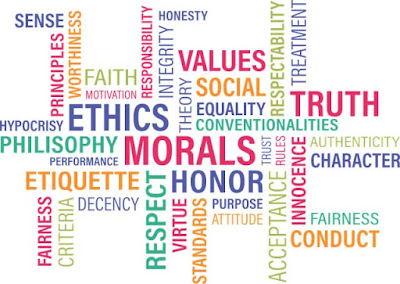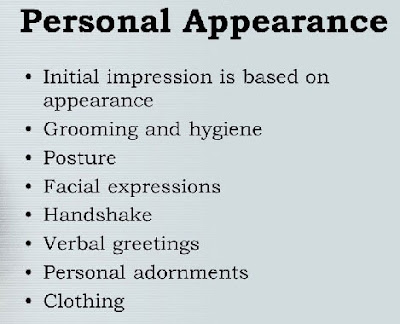Top Ten Soft Skills that Employers Look for in Potential Hires
Soft Skills
In today's working environment, minimum acceptable skills are being replaced with "soft skills". Soft skills complement hard skills. A soft skill refers to the cluster of personality traits, social graces, felicity with language, personal habits, friendliness and optimism that marks each of us to varying degrees. Persons who rank high in this cluster, with good soft skills, are generally the people that most employers want to hire. Recruiters like the outgoing, friendly, well-adjusted candidates more than those with great qualifications but less acceptable soft skills. And there is no question that Personal appearance contributes significantly to a positive reaction. Soft skills complement hard skills, which are the technical requirement of a job.
There may be no easy way to train soft skills. The basics stem from early childhood and the family environment. But just as you can learn a language after infancy, it is possible to acquire these skills as well, if you develop your awareness about them.
Top ten often-mentioned soft skills in effective business communication are:
- Behavioural traits such as attitude, motivation and time management
- Business etiquette
- Personal appearance and social graces
- Team spirit
- Negotiation skills
- Problem Solving Ability
- Leadership qualities
- Cross-cultural communication
- Report Writing ability
- Effective listening
These include the ability
➤ to arrange one's own tasks for best performance
➤ to learn from experience
➤ to ask questions and correct one's mistakes
➤ to absorb criticism and direction without feeling defeated, resentful, or insulted.
"Attitude is the mother of luck", says a writer who has been a basketball player and coach in America. "Every life has its setbacks. Facing those setbacks is what keeps you alive".
A well-known pianist from France says: The most humble work does not have to be boring. I remember the old woman who cleaned the floor in my house. She was 80 years old. One day she knocked at my door and said, "Mademoiselle, I know you don't like to be disturbed, but the floor, come and see it; it shines!"
2 Business Etiquette
The habitual use of "please", "thank you", "excuse me", and "may I help you?" in dealing with customers, supervisors, and colleagues is the minimum etiquette.
Business is built on relationships, but human interaction is fraught with communication landmines that can range from the embarrassing to the punitive.
Missteps in any situation calling for the right business etiquette can severely damage one's own reputation and effectiveness. Mistakes can ever hurt the company. In contrast, knowing how to resolve a business etiquette dilemma can win important gains such as building a reputation for trustworthiness and tact. Sending a message that you respect others earns you their respect in turn. Clearly, mastering business etiquette generates valuable results for oneself and one's organization.
"Just as the golden rule of real estate is the location, location, location, the golden rule of work is relationships, relationships, relationships"— a human resources consultant.
The ability to choose one's dress, grooming, body language, the tone of voice, and vocabulary according to the particular culture of the given workplace is a social grace. Dressing smartly reflects your respect for others and also contributes to one's dignity and self-esteem,
➤ share responsibilities
➤ confer with others
➤ honour commitments
➤ help others do their jobs, and
➤ seek help when needed
reflects tolerance and breadth of vision, and helps the quite, reticent persons in the team to blossom.
A football coach says: "There have been a lot of teams that know the basics of the game and have discipline but don't win matches. Then you come to the third ingredient. If you are going to play together as a team, you've got to care for one another." He continues:" The difference between mediocrity and greatness is the feeling these guys have for each other. Most people call it team spirit."
5 Negotiation Skills
The skills of negotiating is a very important skill in communication, especially in business communication. We need to negotiate with customers, suppliers, employers, and trade unions. Some of the basic negotiation skills to be acquired are:
➤ doing our homework, so that we are fully prepared to discuss every aspect of a task;
➤ being able to respond to every question and comment;
➤ being clear in mind about exactly what we are after;
➤ being persistent — not expecting to "win" the first time;
➤ making friends with the person with whom we are bargaining; and
➤ keeping our sense of humour intact!
Some experts believe that "sibling rivalry" — or competitiveness among brothers and sisters — is a good training ground for developing negotiation skills. In families, children learn to negotiate when two people want the same — or different — things. Children also learn how to live with the results of the competition: they see the unhappiness in those who lose or their own disappointment at losing. More importantly, children come face-to-face with their differences — their strengths as well as their weaknesses. Learning to see differences in a positive light can lead to increased self-esteem and self-awareness.
The hi-tech industry is extremely fast-paced. Employers are constantly being faced with new challenges, both technical and non-technical. Employees will need to be able to solve problems quickly and efficiently in order to keep up. Creativity and innovation are often key qualities that employers look for in potential hires.
Not every employee is necessarily going to lead a project in future. However, with the pace of change and staff growth as well as mobility, many companies are turning to employees for assistance in training and mentoring new team members.
8 Cross-cultural Communication
Communicating across cultures involves:
9 Report Writing Ability
10 Effective Listening
Conclusion
➤ Understanding their culture from their perspective, while not making overgeneralizations;
➤ Understanding the differences in social values between cultures;
➤ Developing the ability to understand the symbols of the other culture, and not attaching meanings derived from one's own culture.
Colours have different symbolic values in different cultures, especially white and black. Some cultures wear light colours during the day and dark colours in the evening or night.
Not getting personal: asking people about their age, marital status or professional status, their salary, what they paid for a personal item of luggage or clothing, or other personal details too soon after we meet them is a common problem.
Some negative remarks heard about young executives
"The use coloured hankies and white socks, instead of the other way round"
"They wear unpolished shoes, often without socks"
"They roll up their sleeves, wear long ties, and have oily hair"
"They use their use their index fingers to point, and their body language id 'excessive'"
"They have poor table and telephone manners"
"They have poor voice control"
"They lack brevity and use superlatives"
"They frequently interrupt when someone is talking"
"They eavesdrop!"
"They do not knock on the door while entering someone's room"
One should be able to present cogently and aesthetically a report on what one wants to do or has done, by using the right words and the right visuals ─ such as bullets, graphs and charts ─ wherever necessary. This is very important because a report is read by more than one person. Reports should be accurate, sequential, coherent, logical, chronological, and above all, honest.
Knowing how to listen effectively in a work environment is the key to understanding the tasks assigned to you. You will then be able to carry them out without supervision. Knowing how to listen is as important as being able to articulate what you want to say.
Most compliments that employees receive deal with your ability to listen more than with your actual knowledge about a particular situation. Most customers appreciate a "willingness to help" and the fact that "(s)he listened to my complaint." These qualities are what elevate your organization above the competition.
With the above list of components of top ten soft skills, these must be added
➤ the ability to sense and respond to what is required in different environments
➤ the ability to learn by watching those around you who are the most successful
➤ the ability to speak, read and write standard English appropriately in a business environment. One may have the "hard" skill of knowing what usage is correct and what usage is incorrect, but lack the "soft" skills of knowing when to use which standard forms. and in what tone to use them; and knowing when to go along with a different kind of usage that your business partner has because politeness demands it.








ConversionConversion EmoticonEmoticon